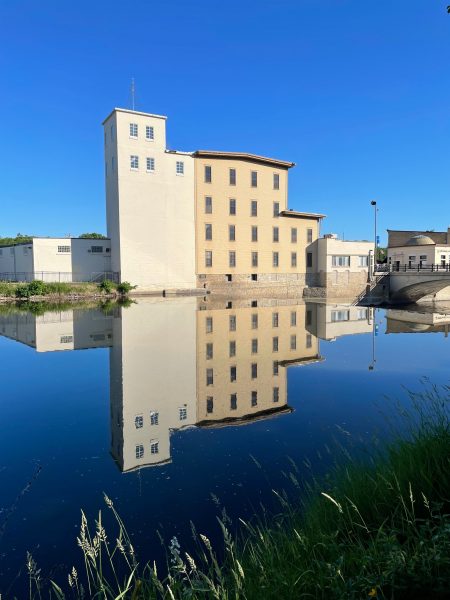In 2016-2017 the environmental studies department found itself wishing to implement a different model for the experiential component requirement for our majors and concentrators. After due consideration of alternatives, I was selected/volunteered to pilot a course that used academic civic engagement (ACE) projects as a way to integrate and apply environmental inquiry and knowledge across all three areas of the department and its curriculum. What was really beneficial about developing a course like this was frequent consultations with colleagues and professionals who have structured civic engagement as integrated learning as well as the opportunity to invite students into the mix as course design collaborators. What resulted was a formal proposal for a required course at the intermediate level that brought the arts, humanities, social sciences and natural/physicals sciences together through ACE projects and rotating course themes.
Out of the gate, the first few course themes included:
- Environmental sustainability: fact, fiction or future?
- Can a community be sustainable? What is community? What is sustainable?
- Can a city be sustainable?
- What is environmental leadership? What does it mean to be an environmental leader?
Over the last two years, the course has focused on being an environmental agent, namely, the various roles and strategies one might play to promote change or particular actions. In light of an ever increasing interest and need for social/environmental justice, this has proven very rich space for integration and application of environmental study. Many of the ACE projects intersect with these conceptual and practical spaces well. See below for examples (and public links where possible) of the ACE Projects conducted to date:
ACE Projects & Partners
| Partner | Project | Date(s) | Public work products |
| City of Northfield – Sustainability Waste & Materials work group | Climate Action Plan: Ole Ave Project – Alternatives to building demolition | Fall 2020 Spr 2021 |
3 podcasts pertaining to the Ole Ave Townhomes, the Hillcrest Affordable/Net Zero energy townhomes and a summary episode. The Hillcrest project is Episode 7 of the Sustainability series podcasts available from Anchor.fm. |
| St. Olaf College – Environ Studies Department | Constructing a robust environmental justice course | Fall 2020 Spr 2021 |
|
| City of Northfield – Sustainability | Climate Action Plan: Sustainable building policy | Spr 2021 | |
| City of Northfield – Sustainability | Climate Action Plan: Sustainable building policy – energy focus | Spr 2021 | |
| City of Northfield – Sustainability | Climate Action Plan: Virtual and physical Sustainability Tour(s) | Fall 2020 | Residential tour, Business tour, General sustainability resources tour – Story map published on city web site. |
| City of Northfield – Sustainability | Climate Action Plan: EV and PV Ready Home Policy | Fall 2020 | |
| River Bend Nature Center | Options for gathering visitor numbers and types of engagement with RBNC | Fall 2019 | |
| St. Olaf College – International & Off-campus Studies | Policy development and measuring CO2e emission from air travel. | Fall 2019 | |
| City of Northfield – Sustainability Waste & Materials work group | Strategies for diversion of materials from municipal solid waste streams | Fall 2019 | |
| Northfield Reads | Support for common readings on climate; suggestions for learning, inquiry and action. | Fall 2019 | See fiction, non-fiction and children’s reading list suggestions for climate related texts. |
